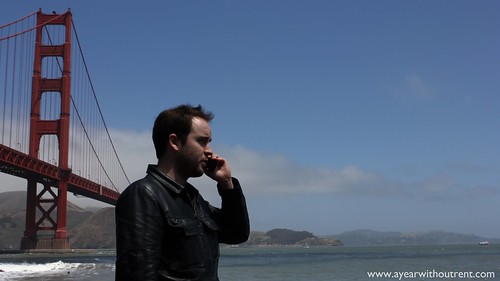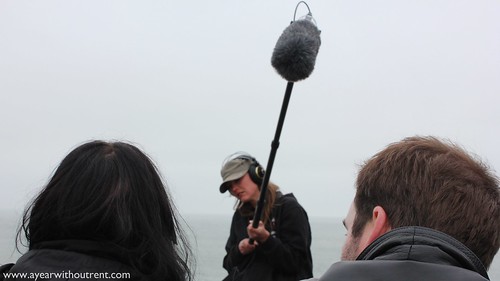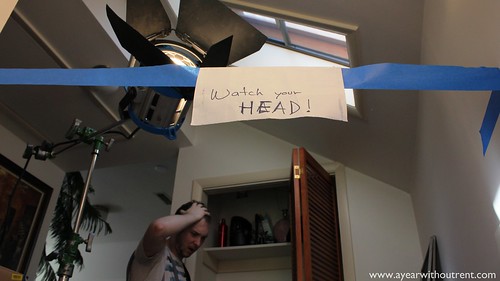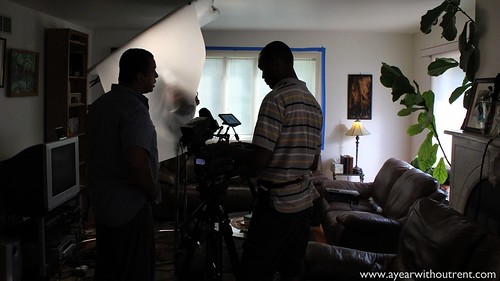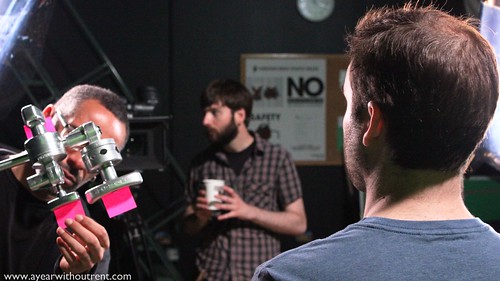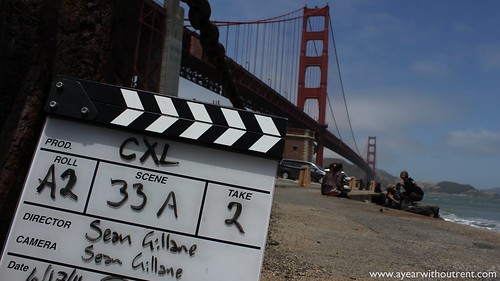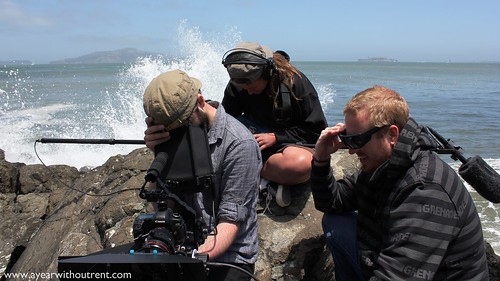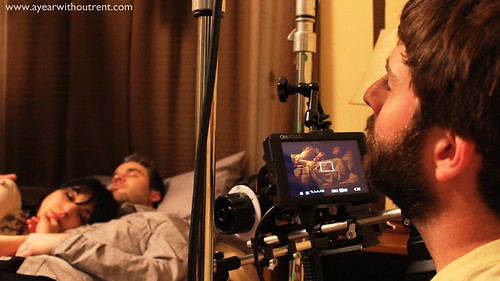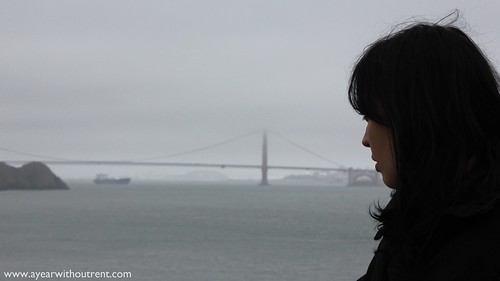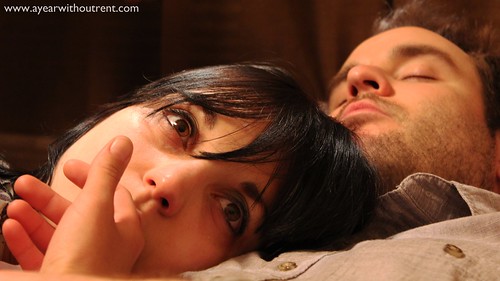 Back to selection
Back to selection
A YEAR WITHOUT RENT, PART 4
When I was a kid, one of my father’s favorite sayings was, “why don’t you play in the road?” He had two sons close in age who were active and rambunctious and it wasn’t a particularly large house, so any excuse to get us where we could be neither seen nor heard was a good one. And in his defense, it was a pretty quiet country road, so the danger was minimal.
I think of this sometimes when I’m on set and a particularly non-essential person is, to put it nicely, in the way. For the sake of simplicity, let’s call this person a “producer.”
I put it in quotes because across the indie film world there are hundreds of fantastic producers who work their asses off to turn a director’s vision into reality. They’re the first ones to show up and the last ones to leave, and they do things like sending out call sheets from their sister’s wedding reception two time zones away. If you find one of those producers, hang on to them for dear life because someone will try and steal them away from you.
And then there are “producers,” the type of people who argue with the Art Department over the need of a $3 prop, who sit in a walkway playing video games on their iPad, who ask the DP questions like, “are the number of people in the room affecting the light?” and generally just shouldn’t be on set. And I don’t mean “shouldn’t be on set” in the sense that they don’t really serve a purpose. I mean it in the sense that they slow things down. They’re in the way and more or less a destructive force. They should no more be on set than your crazy uncle who will eat all the craft services and make lewd advances toward your actresses…Unless, of course, that crazy uncle is one of your actors, but that’s a different article.
Often the rationale is that said “producer” was pretty valuable behind a desk, organizing things and dealing with paperwork, and that may very well be true, but it doesn’t mean they need to be crammed behind the monitor in a tiny room, taking up the very space where the sound guy needs to stand. If they’re good behind the desk, maybe they should stay behind the desk. You don’t ask your gaffer to fill out SAG paperwork. No, you let the gaffer do his job, and if you’ve got a really good one, you stay the hell out of his way. Your job as a producer is to make the crew’s job easier whenever you can. Get them what they need and let them make you look good.
Long story short, yes, I got in an argument with a “producer” and, yes, I wrote about it in detail. Because there’s a lot of people out there who do a lot of talking about how they produce films who shouldn’t be allowed within a mile of a film set, lest they break something.
If nothing else, a community should weed out the people who aren’t worth a damn, because few things are worse than getting saddled with a headache someone else could have warned you about but didn’t in the interest of being “nice.” Life is too short (and productions are too difficult) for that. Directors will often talk to each other about which actors were difficult to work with and which were a delight. There’s no reason that shouldn’t expand into other areas.
Of course, that was only a small part of our fourth month. It just kind of sucked all the air out of the room. It’s a shame, because that was a project with a terrific crew that did some really fantastic things, like turning an on-going prop into a type of diffusion, simply because the DP liked the different look it gave the light. It was kind of a brilliant move, actually, as it’ll give the film a unique look that’s not only cool but cool in a way that fits the narrative.
In San Francisco, I worked on the very first film we scheduled — Sean Gillane’s CXL — and spent a day on a green screen soundstage. The big takeaway being that when an actor complains about doing green screen work, believe them. It’s, by definition, tedious, tedious work where you’ll very often find yourself interacting with a piece of tape on the end of a metal pole, having no context of what the hell is going on around you. It’s hard to see how that could even be a situation where one might be able to turn in a good performance. How do you find the humanity of your character in that situation? It gives new appreciation for how hard an actor’s job can be sometimes. Because the audience won’t care that you were slightly lifeless because you were talking to tape. They’ll just see the lifeless part.
Thankfully for CXL (and actor Cole Smith), that was only part of the production. We got to shoot real world footage near where they shot the Golden Gate Bridge scene in Vertigo and in the neighborhood around Sean Gillane’s apartment.
We also shot in Sean’s apartment, which is something a director generally doesn’t want to do, if not for his sake then the sake of the people living with him. Living with a director in production is a bit of a nightmare. Gary King once joked that we should start a support group for the significant others of filmmakers called “It Never Really Gets Better.” Add to that the hell of living in the production, with all the gear all scattered around and in the way and your bed being used to shoot a sex scene at 2 a.m. after you’ve been at work all day, and it’s amazing that any relationships survive such shoots. A tip: put your significant other up in a hotel or something. It’s worth it. That’s what Sean did. Well, actually his better half decided this was a really convenient time to visit family members and friends out of town.
I’m now through four months (or is it five?) and the fatigue is starting to pile up. I started writing this article in Oregon (or maybe it was San Francisco?) two weeks ago (or three?) and I’m just now finishing it on a plane from Seattle to London. A plane that I thought left yesterday. I even showed up at the airport yesterday, ready to fly, only to discover that it wasn’t the right day. Turns out that not only did I have no idea what day of the month it was, I had the day of the week wrong too. Really, I’ve started to lose all perspective of time and place. On Favor (which we’ll get to in the next article), we had the sponsorship of Vuka Energy drink, and used a lot of soft lights for lighting. Cut to days later and I’m back in San Francisco to pick up again with the CXL production. I’m at the craft services table for five minutes looking for Vuka then can’t figure out what happened to the china ball. It’s all a blur. I’ve gone through multiple layers of exhaustion. My back has given up on hurting from sleeping on couches. My hair is going gray a lot quicker than it used to.
I have vague memories of productions in Maine and New York and Minnesota and even recent ones in Seattle. It feels like I’ve been doing this for years, not months. And I’m not even to the half-way mark.
I know what you’re thinking: didn’t I realize it would be like this? Sure. But there’s a difference between knowing something and experiencing it. College football players talk about how much faster things will move in the NFL, and yet they’re always surprised to find just how big the difference is. This is easily the most tired I’ve ever been in my life. Is it worth it so far? Absolutely. But I’m still really fucking tired.
It’s a good tired. But tired is tired. What time zone is this?
Filmmaker Lucas McNelly is spending a year on the road, volunteering on indie film projects around the country, documenting the process and the exploring the idea of a mobile creative professional. You can see more from A Year Without Rent at the webpage. His feature-length debut is now available to rent on VOD. Follow him on Twitter: @lmcnelly.
